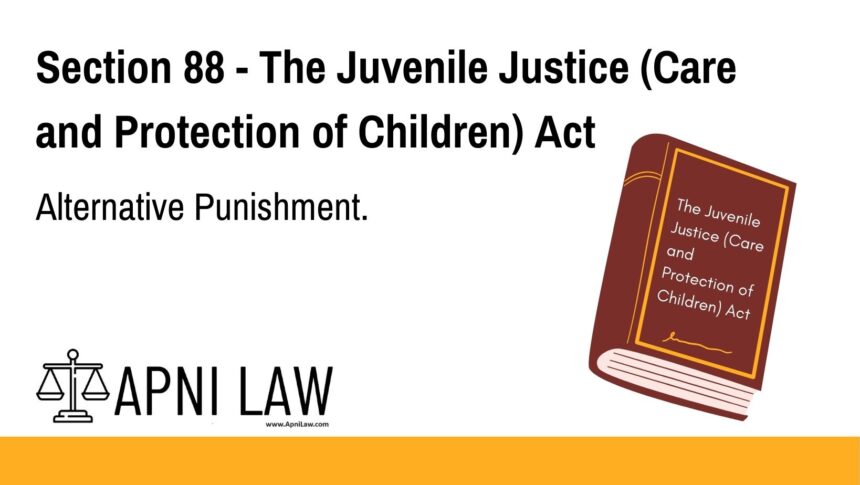Code: Section 88 of the Juvenile Justice (Care and Protection of Children) Act
88. Alternative Punishment
Where an act or omission constitutes an offence punishable under this Act and also under any other law for the time being in force, the offender found guilty of such offence shall be liable for punishment under the law which provides for a greater punishment.
Note: This provision overrides any other law in case of conflicting punishments.
Explanation of Section 88 of the Juvenile Justice Act
Section 88 of the Juvenile Justice (Care and Protection of Children) Act addresses situations where an act or omission constitutes an offence under both the Juvenile Justice Act and another applicable law.
- Key Point: If an offender is found guilty of an offence that is punishable under both laws, the offender will be subjected to the punishment under the law that provides for a greater penalty.
- This ensures that the severity of the punishment is aligned with the seriousness of the offence as per the law with the stricter penalty, even if there are conflicting provisions in other laws.
Illustration
Example 1: Offence Under Multiple Laws
A person is found guilty of exploiting a child under both the Juvenile Justice Act and the Protection of Children from Sexual Offences Act, 2012 (POCSO Act). If the punishment for exploitation under the POCSO Act is more severe than under the Juvenile Justice Act, the offender will be punished according to the POCSO Act.
Example 2: Offence Under the Juvenile Justice Act and Indian Penal Code
If an offender commits an act that qualifies as child trafficking under both the Juvenile Justice Act and the Indian Penal Code, and the punishment under the Indian Penal Code is harsher, the court will sentence the offender according to the Indian Penal Code’s provisions.
Common Questions and Answers on Section 88
1. What happens if an act violates multiple laws?
- Answer: If an act violates both the Juvenile Justice Act and another law, the offender will face punishment under the law with the greater punishment, as stated in Section 88.
2. Does the court have any discretion in deciding the punishment under Section 88?
- Answer: No, the court must apply the law that provides for the greater punishment, overriding any conflicting provisions from other laws.
3. Can an offender be punished under both the Juvenile Justice Act and other laws?
- Answer: Yes, an offender can be punished under both the Juvenile Justice Act and other applicable laws. However, the punishment will be the greater of the two as per Section 88.
Conclusion
Section 88 of the Juvenile Justice (Care and Protection of Children) Act ensures that offenders are punished according to the law that provides the greater penalty when an act violates both the Juvenile Justice Act and other laws. This provision ensures consistency in sentencing and the application of the most severe penalty when multiple legal frameworks are involved.








